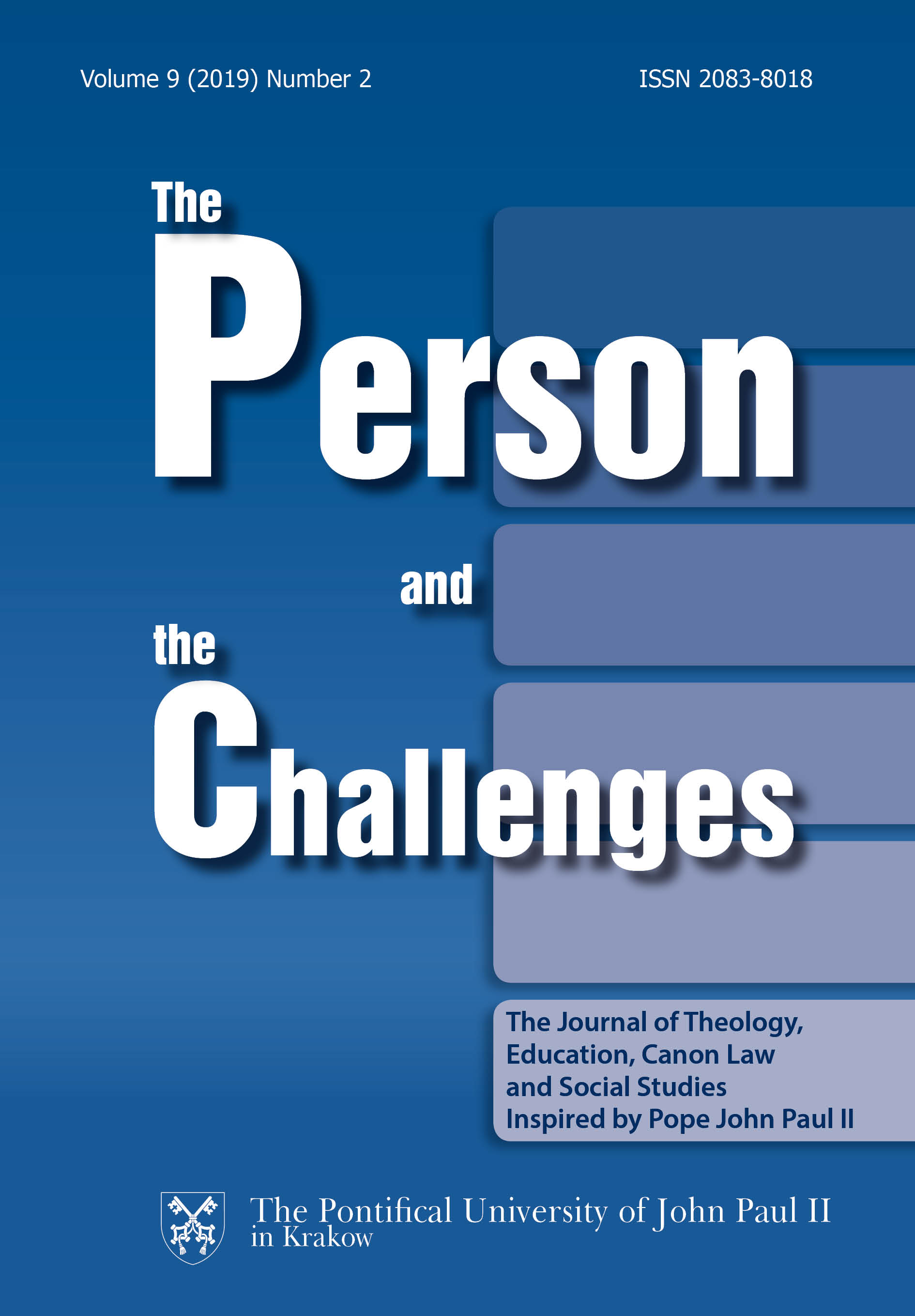The Importance of the Diocesan Synod to the Particular Church
DOI:
https://doi.org/10.15633/pch.3460Słowa kluczowe:
The Bishop, Diocesan synods, Particular Church, Pope Francis, synodalityAbstrakt
“Particular Churches, in which and from which, the one and only Catholic Church exists, are principally dioceses. Unless the contrary is clear, the following are equivalent to a diocese: a territorial prelature, a territorial abbacy, a vicariate apostolic, a prefecture apostolic and a permanently established apostolic administration” (canon 368 of the Code of Canon Law). In December 2016, the Bishop of Tarnów convened the 5th Synod of the Diocese of Tarnów. The main purpose of a Synod – in the opinion of the Bishop of Tarnów – was to demonstrate the spiritual, pastoral and material heritage of the Christ’s Church in the Diocese of Tarnów; to revive faith, hope and love in the personal and community relationship with Christ in the Church; and to indicate new pastoral ways in the changeability of the world towards the unchangeability of Christ. Taking this into consideration the article analyzes the following issues: the definition of a synod; the purpose of a synod; convocation of and presiding over a diocesan synod; the preparation of a synod; Pope Francis about synodality, and finally “The Church is our neighbour” – a synod as an expression of love for the Church.
Bibliografia
Codex Iuris Canonici 1917.
Codex Iuris Canonici 1983.
Congregation for Bishops, Directory Apostolorum succesores, Typis Polyglottis Vaticanis 2004.
Congregation for Bishops, Directory Ecclesiae imago, Typis Polyglottis Vaticanis 1973.
Congregation for Bishops, Instruction De synodis dioecesanis agendis, in: Ustrój hierarchiczny Kościoła. Wybór źródeł, 2, ed. M. Sitarz, A. Romanko, U. Wasilewicz et al., Lublin 2013, pp. 516–557.
Corbellini G., De synodo dioecesano, in: A. Marzoa, J. Miras, R. Rodríguez-Ocaña, (eds.) Comentario exegético al Código de Derecho Canónico, Pamplona 2002, pp. 992–1029.
Dudziak J., Synod diecezjalny, jego struktura i rola w Kościele partykularnym, “Colloquium Salutis” 16 (1984), pp. 47–79.
Francis, Address during the Meeting with the Clergy, Consecrated People and Members of the Diocesan Pastoral Councils Assisi – 4 October 2013.
Francis, Address to the Leadership of the Episcopal Conferences of Latin America during the General Coordination Meeting, Rio de Janeiro, 28 July 2013.
Francis, Synodality, as a constitutive dimension of the Church, “L’Osservatore Romano” 34 (2015) no. 11.
Jeż A., Kościół na wzór Chrystusa. List pasterski zapowiadający V Synod Diecezji Tarnowskiej, „Currenda” 4 (2016), pp. 496–501.
Kantor R., The Synods of the Diocese of Tarnów as a tool for the renewal of the particular Church, „The Person and the Challenges” 7 (2017) Number 2, pp. 181–195.
Paul VI, General audience of 18 September 1968, in: Paweł VI – Trwajcie Mocni w wierze, vol. 2 – Publishing House of Apostolstwo Młodych – Cracow 1974.
Rozkrut T., Synod diecezjalny w Kościele, Tarnów 2002.
Rozkrut T., Synod diecezjalny w życiu Kościoła partykularnego na początku trzeciego tysiąclecia Kościoła, in: Stanisław Łabendowicz (ed.) II Synod Diecezji Radomskiej, Biuletyn I, Czynić diecezję domem i szkołą komunii, Radom 2008, pp. 79–111.
Pobrania
Opublikowane
Numer
Dział
Licencja
Prawa autorskie (c) 2019 Robert Kantor

Utwór dostępny jest na licencji Creative Commons Uznanie autorstwa 4.0 Międzynarodowe.
Autorzy publikujący w czasopiśmie udzielają jego wydawcy zgody o następującej treści:
- Autor zachowuje autorskie prawa majątkowe do utworu, a jednocześnie udziela wydawcy czasopisma zgody na jego pierwszą publikację w wersji drukowanej i wersji online na licencji Creative Commons Uznanie autorstwa 4.0 Międzynarodowe oraz zgody na wykonywanie opracowań, w tym przekładów.
- Autor ma możliwość udzielania zgody niewyłącznej na opublikowanie utworu w wersji, która ukazała się w czasopiśmie (np. zamieszczenia go w repozytorium instytucjonalnym lub opublikowania w książce), wraz z informacją o jego pierwszej publikacji w czasopiśmie.
- Autor może umieścić swój utwór online (np. w repozytorium instytucjonalnym lub na swojej stronie internetowej) jeszcze przed zgłoszeniem utworu do czasopisma.

